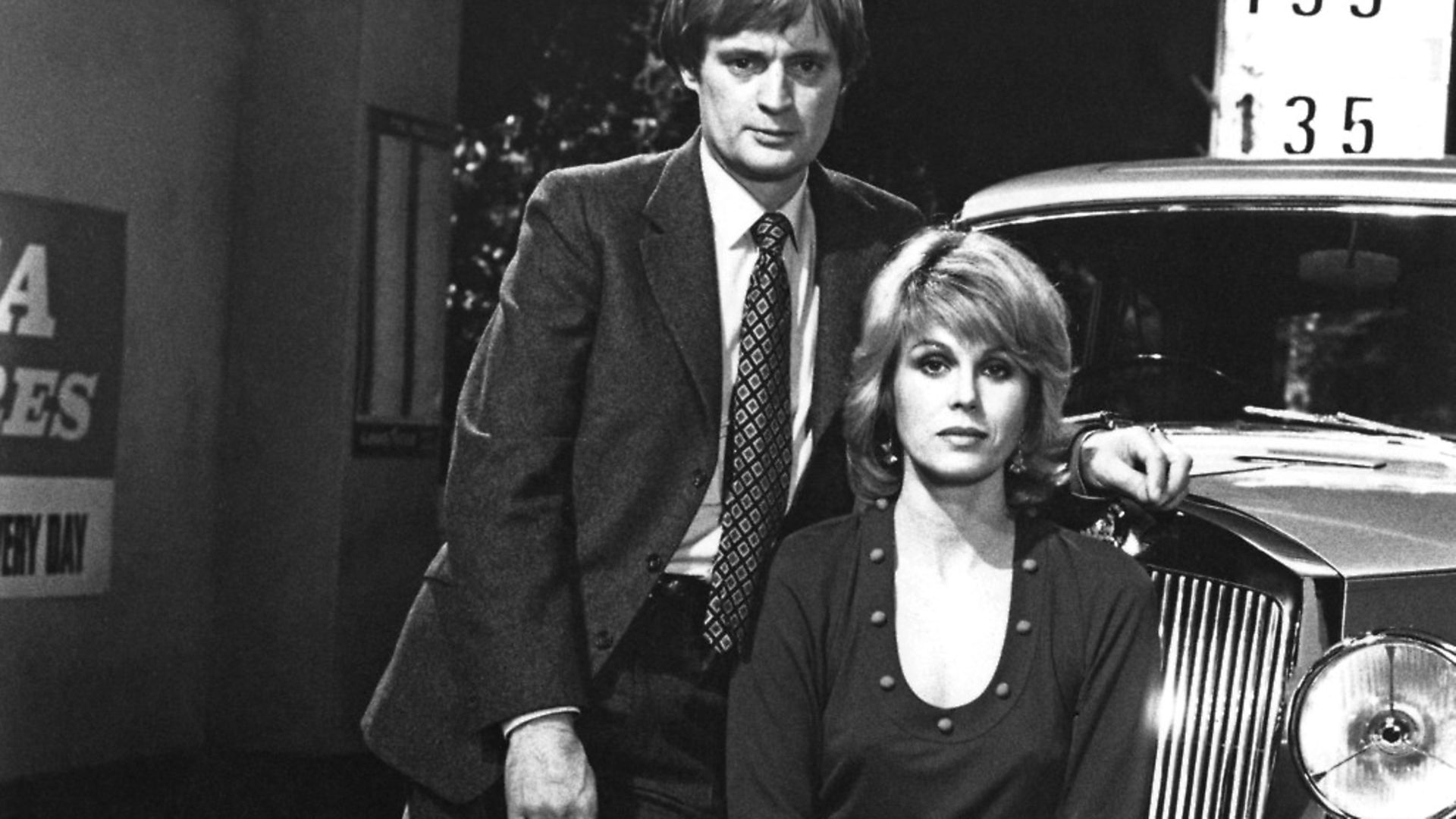
MITCH BENN sees 2020 as the perfect time for Sapphire and Steel to return – as something has definitely gone wrong with time.
Okay so who remembers Sapphire & Steel?
I’m guessing that most of you of a similar (increasingly dusty and obscure) vintage as myself will recall Sapphire & Steel being on prime time ITV from the late 1970s to the early 1980s, even if you didn’t actually watch it. It was one of those shows that gets discussed at least as much as it gets enjoyed: a sci-fi/fantasy drama of such wilful complexity as to make The Prisoner look like The Clangers and paced at so deliberately a sedate tempo as to make Stanley Kubrick start scratching himself and glancing at his watch.
It’s hard to imagine anyone currently in charge of the schedules at ITV watching Sapphire & Steel, let alone commissioning several series’ worth of it.
If you’ve never seen it, I imagine it’s available via most of the many channels by which one can, these days, get hold of long-departed cult TV shows.
The premise concerns the titular heroes, played by Joanna Lumley and David McCallum respectively, who appear to be human investigators but who are in fact the humanoid personifications of immortal elemental beings (or something like that) and who turn up unbidden (and apparently uninstructed) at incidents at which Something Has Gone Wrong With Time.
Historical periods overlapping, malevolent entities sneaking into our reality from Somewhere Else, that sort of thing.
It ran for several seasons (and ended, the nerdier of you may recall, on an agonising cliffhanger which remains unresolved nearly 40 years later) to widespread acclaim and almost universal bewilderment, even among its keenest fans.
Since it was regarded at the time as being ITV’s answer to Doctor Who, and since Doctor Who itself was successfully resurrected 15 years ago (yes, just the phase of Doctor Who that’s been going since it was brought back is now 15 years old; how old do you feel now?) there has been occasional talk of rebooting the show.
The last I heard, one attempt had been well under way before being stymied by whoever was commissioning it insisting that a new version would have to begin, Marvel movie-style, by telling Sapphire and Steel’s ‘origin story’, thus missing the point of the characters entirely.
This is a shame because if ever there was a time when Sapphire and Steel were needed, it’s the year 2020. Something has, very definitely, Gone Wrong With Time.
I’m not (necessarily) talking about the feeling that I know many of us have had for the last few years, that we’re stuck in a bad timeline (like the ‘Biff Rules the World’ bits of Back To The Future Part II or the ‘Pottertown’ sequence in It’s a Wonderful Life) which some plucky time-travelling hero is currently working to set right (having possibly caused it himself inadvertently).
It’s a tempting, indeed seductive notion, although for my money the very fact that nobody appeared out of thin air in 2016 to prevent the rise to power of Donald Trump probably establishes beyond all doubt that time travel will never be invented.
(I did once read somewhere, on Twitter I think, someone positing the fascinating notion that maybe Hitler only grew up so evil and twisted because he had to spend his entire childhood evading time-travelling assassins. Now that’s a science fiction movie someone should make).
I’m just referring to the fact that since lockdown began, time doesn’t appear to be moving at a uniform speed anymore.
April seemed to last for about six months, May for about nine days and I hardly even noticed June at all. Time is speeding up; we’re now over a week into July and I’m starting to wonder if I should start planning for Christmas.
It might just be that we’ve been deprived of so many of the things by which we measure time’s passage; the events by which we mark out the rolling year simply aren’t happening.
I remember hearing both Billy Connolly and the actor James Purefoy, reflecting on the time they had each spent living in Los Angeles and working on American TV shows, opining that the reason US celebrities spend so much on surgery to reverse the ageing process is that there are no noticeable seasons in LA, so there’s not much sense of the progress of time.
As such, to its wealthy inhabitants, age feels like a disease to be cured rather than an inevitable process of life.
My own late father, who died just after the publication of my first column in this newspaper, telling me that the feeling that time is speeding up never stops; that the older you get the faster it goes.
I think this might be a function of one’s perception of time being relative to how much of it one has seen: when you’re, say, eight years old, a year represents about 20% of the total time you can remember, so the idea of waiting that long for something is unfathomable. By the time you reach 50, if you know something is a year away you start getting your act together now, because it’ll be here before you know it.
I’ll see you next week (or in about 45 minutes, which is what it’ll feel like to me).
Warning: Illegal string offset 'link_id' in /mnt/storage/stage/www/wp-includes/bookmark.php on line 357
Notice: Trying to get property 'link_id' of non-object in /mnt/storage/stage/www/wp-includes/bookmark.php on line 37







